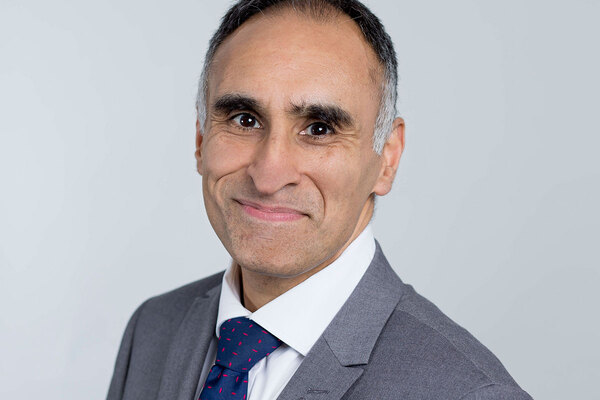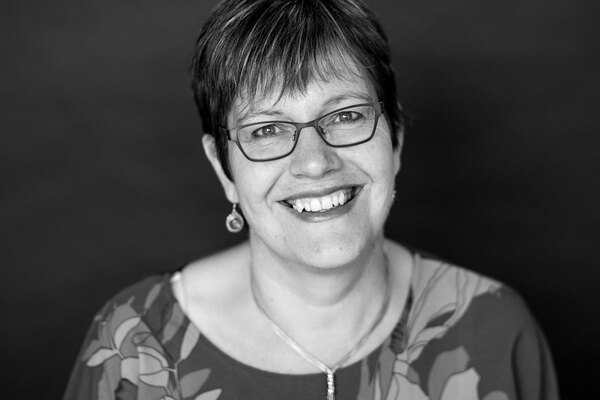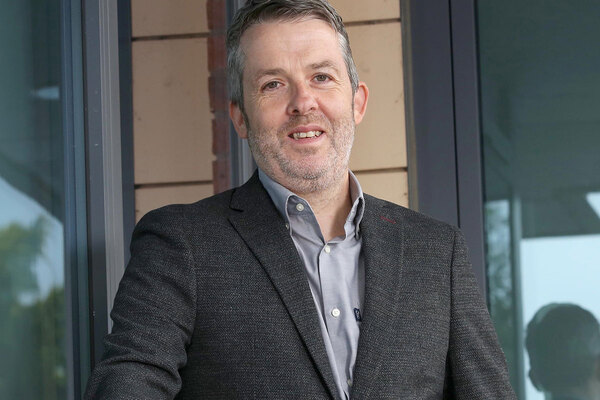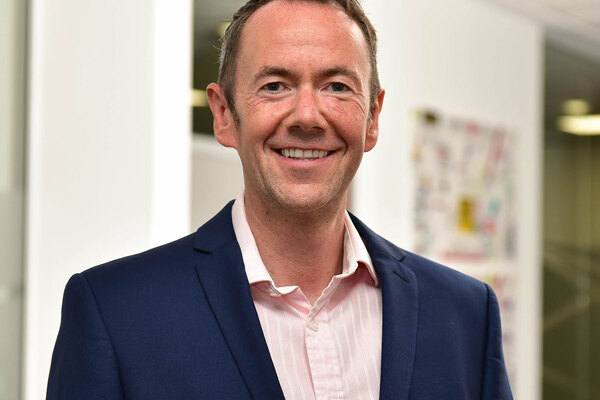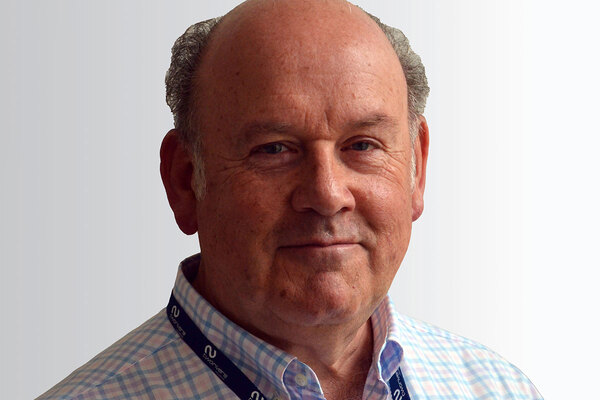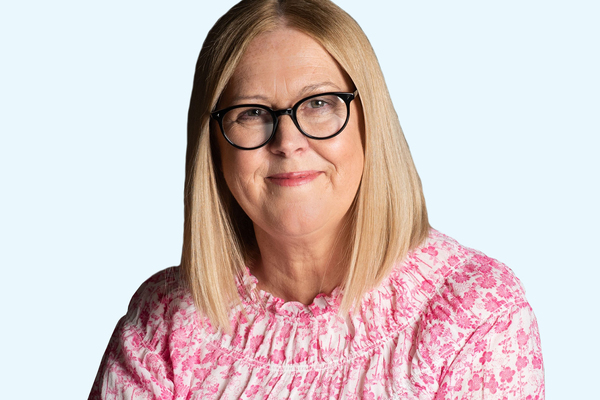You are viewing 1 of your 1 free articles
Inside Housing salary survey 2016
It’s time for our annual look at chief executive salaries, and after some of the most in-depth research to date, Sophie Barnes reveals how the pay within the 177 biggest housing associations in the sector compares
Inside Housing’s annual probe into top-level pay has unearthed another year of pay increases for chief executives, with the average housing association boss seeing overall remuneration grow by 4%.
However, housing association boards may have had more on their minds than usual when setting their chief executive’s salary this year.
The shock announcement from then-chancellor George Osborne of a 1% rent cut over four years came in July last year, with many associations predicting the move would lead to a constrained financial environment.
Highest paid housing association chief executives 2015/16
| Chief executive | Housing association | Total pay | Rise/fall | |
|---|---|---|---|---|
| 1 | David Cowans | Places for People | £528,870 | 9.8% |
| 2 | Jane Ashcroft | Anchor | £400,010 | 12.1% |
| 3 | David Montague | L&Q | £355,105 | 32.1% |
| 4 | David Bennett | Sanctuary Group | £340,000 | 6.6% |
| 5 | Keith Exford | Affinity Sutton | £320,933 | 6.7% |
| 6 | Simon Dow | Guinness Partnership | £273,242 | 1.6% |
| 7 | Darrell Mercer | A2 Dominion Group | £261,873 | 2.9% |
| 8 | Elaine Bailey | Hyde Group | £251,478 | 9.8% |
| 9 | Brian Johnson | Metropolitan | £251,281 | 10.1% |
| 10 | Peter Walls | Gentoo Group | £245,996 | 1.9% |
Highest percentage total pay increases 2015/16
| Chief executive | Housing association | Rise | |
|---|---|---|---|
| 1 | David Montague | L&Q | 32.1% |
| 2 | Jo Savage | Wellingborough Homes | 15.6% |
| 3 | Harj Singh | Aldwyck | 14.1% |
| 4 | Robert Nettleton | Merlin | 13.7% |
| 5 | Elizabeth Austerberry | Moat Homes | 12.9% |
| 6 | Paul Lees | Adactus Housing Group | 12.5% |
| 7 | Anthony Whittaker | United Welsh | 12.2% |
| 8 | Jane Ashcroft | Anchor | 12.1% |
| 9 | Gary Fulford | Walsall Housing Group | 11.8% |
| 10 | Mike Hinch | Newlon | 11.2% |
Performance in focus
Coupled with ever tougher messages coming from government on the performance of housing associations and an increased focus on development, the job of setting executive pay might have been more fraught than in previous years.
Yet despite budgetary concerns, housing associations are so far performing relatively well financially, suggesting the pain is yet to come. Average financial turnover across the biggest 177 associations increased by 12.5% compared to 2014/15.
Similarly, the average number of homes owned or managed by housing associations increased by 4.8%.
These performances were reflected in chief executive salaries with the average basic pay growing by 3.3% to £150,131 in 2015/16 compared with £145,330 in 2014/15.
Highest pay per home owned and managed 2015/16
| Chief executive | Housing association | Pay/home | |
|---|---|---|---|
| 1 | David Renwick | Ocean Housing | £34.54 |
| 2 | Mike Brown | Bromsgrove District Housing Trust | £33.53 |
| 3 | Elspeth Mackenzie | Thrive Homes | £30.93 |
| 4 | Jo Savage | Wellingborough Homes | £30.23 |
| 5 | John Giesen | B3 Living | £29.17 |
| 6 | David Bogle | Hightown Housing Association | £29.10 |
| 7 | Mark Gardner | Melin | £29.04 |
| 8 | Grahame Hindes | Octavia Housing | £28.68 |
| 9 | Paul Doe | Shepherds Bush Housing Group | £27.96 |
| 10 | Anthony Duerden | Calico Group | £26.66 |
Lowest pay per home owned and managed 2015/16
| Chief executive | Housing association | Pay/home | |
|---|---|---|---|
| 1 | Martin Armstrong | Wheatley Housing Group | £2.97 |
| 2 | David Bennett | Sanctuary Group | £3.39 |
| 3 | David Cowans | Places for People | £3.46 |
| 4 | Carol Matthews | Riverside | £3.55 |
| 5 | Mark Rogers | Circle | £3.68 |
| 6 | Mark Henderson | Home Group | £4.35 |
| 7 | Steve Close | Together Housing Group | £4.36 |
| 8 | Simon Dow | Guinness Partnership | £4.50 |
| 9 | Phil Gandy | Symphony Housing Group | £4.53 |
| 10 | Peter McCormack | Derwent Living | £4.78 |
Chief executives also enjoyed a good year for bonuses. The average bonus rose by 10.7% compared to 2014/15 and seven extra housing associations gave out bonuses compared to the previous year.
The gender gap still appears to be an issue in housing, with the average male chief executive’s overall pay 7.2% higher - with just 14 women heading the 50 largest associations.
New prime minister Theresa May has been talking tough on executive pay. She has made tackling excessive pay a priority and vowed to give workers and consumers a place on boards so pay rises can be scrutinised.
Although housing association chief executive salaries pale in comparison to some of their equivalents at FTSE 100 companies, Ms May’s cautionary words suggest that economic restraint could be the order of the day as Britain absorbs the impact of the vote to leave the EU.
Highest pay per £m turnover 2015/16
| Chief executive | Housing association | Total pay/ £m turnover |
|
|---|---|---|---|
| 1 | Mike Brown | Bromsgrove District Housing Trust | £6,685 |
| 2 | Jo Savage | Wellingborough Homes | £6,382 |
| 3 | Elspeth Mackenzie | Thrive Homes | £5,442 |
| 4 | John Archibald | Victory Housing Trust | £5,436 |
| 5 | Anthony Duerden | Calico Group | £5,240 |
| 6 | Shaun Tymon | Yorkshire Coast Homes | £4,965 |
| 7 | Robert Tamburrini | NG Homes | £4,964 |
| 8 | John Giesen | B3 Living | £4,771 |
| 9 | Ron Dougan | Trent & Dove | £4,580 |
| 10 | Karen Armitage | Stafford and Rural Homes | £4,588 |
Lowest pay per £m turnover 2015/16
| Chief executive | Housing association | Total pay/ £m turnover |
|
|---|---|---|---|
| 1 | David Montague | L&Q | £493.20 |
| 2 | David Bennett | Sanctuary Group | £508.22 |
| 3 | Carol Matthews | Riverside | £513.49 |
| 4 | Neil Hadden | Genesis | £541.42 |
| 5 | Kate Davies | Notting Hill Housing | £544.39 |
| 6 | Mark Rogers | Circle | £544.42 |
| 7 | Helen Evans | Network Homes | £600.83 |
| 8 | Stephen Howlett | Peabody | £627.24 |
| 9 | Simon Dow | Guinness Partnership | £641.41 |
| 10 | Mark Henderson | Home Group | £644.19 |
Reputation on the line
Some commentators are also warning against large increases in CEO pay at a time when the political gaze is on housing associations. James Tickell, managing director of consultancy Campbell Tickell, says there is a “huge unstated political pressure on the sector not to be seen to be pushing its luck”.
He says at a time when the government has been critical of housing associations for paying their chief executives too much and not building enough new homes, “boards should be thinking very carefully about reputational issues”.
“This really isn’t the time to be paying senior staff large increases,” he adds.
“Boards should be thinking very carefully about reputational issues.”
James Tickell, managing director, Campbell Tickell
A recruitment consultant, who wished to remain anonymous, says despite the 1% rent cut having a “significant impact” on the sector, housing associations have been exercising caution for a number of years now.
She says: “The focus on value for money from the regulator and the need for efficiencies has been going on for years.” When it comes to deciding executive pay she says it depends what a housing association’s ambitions are.
Top 10 biggest pensions (employer contributions) 2015/16
| Chief executive | Housing association | Employer contribution | |
|---|---|---|---|
| 1 | Bob Strachan | Stonewater (formerly Jephson and Raglan) | 50.7% |
| 2 | Jane Ashcroft | Anchor | 30.0% |
| 3 | Andrew Orrey | Ongo | 28.3% |
| 4 | Mark Rogers | Circle | 27.5% |
| 5 | Anthony Bramley | Shoreline Housing Partnership | 24.0% |
| 6 | David Done | RHP | 23.2% |
| 7 | Zoe Forster | Dumfries and Galloway Housing Partnership | 22.8% |
| 8 | Brian Logan | Bield | 21.7% |
| 9 | Ron Dougan | Trent & Dove | 21.6% |
| 10 | Caroline Titley | Bracknell Forest Homes | 20.9% |
Chief executives with most homes 2015/16
| Chief executive | Housing association | Homes owned and managed | Basic salary 2015/16 | |
|---|---|---|---|---|
| 1 | David Cowans | Places for People | 153,000 | £528,870 |
| 2 | David Bennett | Sanctuary Group | 100,160 | £340,000 |
| 3 | Martin Armstrong | Wheatley Housing Group | 79,355 | £236,035 |
| 4 | David Montague | L&Q | 73,100 | £355,105 |
| 5 | Mark Rogers | Circle | 64,940 | £239,109 |
| 6 | Simon Dow | Guinness Partnership | 60,671 | £273,242 |
| 7 | Keith Exford | Affinity Sutton | 58,808 | £320,933 |
| 8 | Carol Matthews | Riverside | 52,945 | £187,731 |
| 9 | Mark Henderson | Home Group | 51,999 | £226,066 |
| 10 | Elaine Bailey | Hyde Group | 48,207 | £251,478 |
“Some are saying we’ve got more pressure than ever on the business plan and therefore we have to exercise restraint, and others’ view would be that we’ve got huge challenges and we need to make sure we hang on to good people and we need to be able to attract the top calibre roles into the sector.”
“This really isn’t the time to be paying senior staff large increases.”
James Tickell, managing director, Campbell Tickell
A common justification by boards when explaining any rise in salary is the increasingly ambitious plans of housing associations. Inside Housing’s recent development survey revealed the top 50 biggest building housing associations have added 7,377 homes to their pipelines in the last year, contradicting fears that the 1% rent cut would see associations slash their development numbers.
But at a time when a growing number of housing associations are having to make tough decisions about job cuts and looking at where savings can be made, the decision to increase chief executive pay at some associations has angered unions.
Top 10 biggest bonuses 2015/16
| Chief executive | Housing association | Bonus 15/16 | |
|---|---|---|---|
| 1 | David Cowans | Places for People | £140,350 |
| 2 | Jane Ashcroft | Anchor | £78,522 |
| 3 | David Montague | L&Q | £47,105 |
| 4 | Keith Exford | Affinity Sutton | £39,613 |
| 5 | Mick Sweeney | One Housing Group | £34,475 |
| 6 | Brian Johnson | Metropolitan | £32,250 |
| 7 | Darrell Mercer | A2 Dominion Group | £32,046 |
| 8 | Elaine Bailey | Hyde Group | £30,000 |
| 9 | Ann Santry | Sovereign | £26,000 |
| 10 | Paul Hackett | Amicus Horizon | £25,924 |
Bonuses
Fifty-five housing associations paid their chief executives a bonus in 2015/16, compared to 48 in 2014/15. The largest bonus was paid to the chief executive of Places for People, David Cowans, who received £140,350 in addition to his basic pay.
A spokesperson for Places for People says Mr Cowans’ “strong leadership and commitment to innovation” helped to generate “significant investment” for new homes and local communities.
Among the 55 housing associations that paid bonuses to their chief executives in 2015/16, the average was £15,732, a 10.7% increase compared to the £14,213 average in 2014/15.
One former chair of a housing association says he is “rather cynical” about performance-related pay “because on the whole you’re just paying people more to do their job well - actually they should be doing that anyway”.
Colin Inniss, regional organiser for Unison, says giving pay rises to chief executives and not the rest of the workforce is “not sustainable or justifiable”. He says on average housing association employees further down the food chain are receiving up to a 1.2% pay increase “and even that’s over-egging it a bit”.
“Meanwhile, workloads and responsibilities are increasing all the time. The complexity of the work has increased as well,” he adds.
Mr Inniss says housing associations have growing surpluses but are not passing these down in the form of workforce pay rises: “None of that is going to our members and we’re constantly told it is ringfenced for development.”
He cautions the sector that without a “unified approach to pay across the workforce” associations “will fail to be responsible social landlords”.
In numbers
£528,870
Places for People CEO David Cowans’ total salary - the highest in the sector
£32.1%
Pay rise given to L&Q’s David Montague in 2015/16
£150,131
Average basic pay for chief executives
3.3%
Increase in CEO basic pay since 2014/15
7.2%
Difference between average male and female pay among CEOs
£140,350
Bonus paid to Places for People’s David Cowans
18
Number of chief executives taking pay cuts in 2015/16
The rise in salaries
Chief executives saw their salaries rise again this year, with an average increase in total remuneration of 4%. Average basic pay also climbed by 3.3%.
The increase in total salary, including bonuses, is lower than in 2014/15 when it rose by an average of 4.5%. But basic pay climbed faster in 2015/16 compared to the previous year when it was up 2.9%.
The highest paid chief executives also increased their basic salary more between 2014/15 and 2015/16. There was a 3.7% increase for those housing associations who pay their chief executives more than the median salary, and a 3% increase for the lower half.
The biggest increases were not reserved for the larger housing associations. Wellingborough Homes, with stock of 4,625 homes, handed its chief executive Jo Savage a 15.6% increase in total salary. A spokesperson for the organisation said Ms Savage did not receive a bonus in 2014/15 because it was her first year in the role whereas she received an £11,618 bonus in her second year which largely explains the increase in total salary. Her basic salary increased by 6.5%.
10,534-home Aldwyck gave its chief executive, Harj Singh, a 14.1% increase. Paul Dolan, chief executive of 5,038-home Johnnie Johnson Housing Trust, was given a 9.5% increase in salary. A spokesperson for the housing association says this included a £5,000 bonus, while his salary was increased by 4.5% following an independent report commissioned to benchmark chief executives’ pay. It concluded Mr Dolan’s previous salary of £105,000 was “considerably below the median” for an organisation of its size and complexity.
Rises at the top
The highest paid chief executives this year saw their basic pay soar compared to 2014/15.
The top 10 highest paid CEOs had on average nearly 10% higher salaries compared to the 10 highest paid in the previous year’s survey.
David Cowans - at £528,870 - is the only chief executive whose salary tops the £500,000 mark. The figure marks a 9.8% increase on 2014/15 when he earned £481,507.
Mr Cowans’ pay hike has put more distance between himself and the rest. Last year he earned just under £125,000 more in total pay than the next highest paid chief executive, Jane Ashcroft, chief executive of 35,103-home Anchor. This year his salary is £128,860 higher than Ms Ashcroft’s who is again in second place.
Housing associations paying the highest salaries in the sector often argue they need to pay competitive rates in order to retain the best people. A former chair of a housing association is sceptical about this claim.
He says: “There’s always this idea we have to pay the best people top dollar otherwise they might get a job somewhere else.
“The fact is if you’re running a housing association as a chief executive it’s not as though a commercial company is going to bite your hand off to go and run it. Boards can often overstate the risk of losing key staff if they’re not paid enough.”
But housing associations with ambitious development plans say these salaries are justified.
Jonathan Lander, chair of Sanctuary, which paid chief executive David Bennett £340,000 - a 6.6% increase on last year - says he has led the organisation in reducing operating costs and rent arrears and oversaw a restructure and new business plan in response to the government’s call for housing associations to build more homes.
Sanctuary will build 24,000 new homes over 10 years as a result of this work, Mr Lander adds.
L&Q’s chief executive, David Montague, had a 32.1% increase in total pay, from £268,800 last year to £355,105. This included a £47,105 bonus.
Aubrey Adams, chair of L&Q, says in previous years the organisation was “very restrained” in its approach to pay and as a consequence a number of the executive team “fell behind” when compared with peers. He adds it was “imperative” that L&Q “redressed the impact of this historic restraint”.
He says the increased pay reflects the “significant successes” achieved last year, which include delivering a “record” surplus of £270m and the completion of 2,510 new homes.
L&Q is in the process of merging with East Thames to create a 90,000-home housing association with an ambition to build 100,000 new homes. Mr Adams says Mr Montague’s pay increase reflects the “unprecedented scale” of these plans.
Anchor chair Pamela Chesters points out the organisation has one foot in the care sector and the other in housing. In 2015/16 it paid Ms Ashcroft the second-highest salary in the sector - £400,010.
Ms Chesters points out that in the last 12 months Anchor increased its number of care homes by almost 2,000 units and built 230 retirement properties. The majority of Anchor’s turnover now comes from care home fees and leasehold sales - £214.9m - with £152.4m from social housing rent.
A2 Dominion, which has 36,130 homes, paid its chief executive Darrell Mercer £261,873 last year, one of the highest salaries. A spokesperson for the housing association says the salary “varies depending on market conditions and business needs”.
The spokesperson points out the group increased its turnover by 21% last year and completed 1,127 homes across a range of tenures.
Trend spotting
Although the average total salary has gone up since last year, when measured against turnover, it appears housing associations are getting more bang for their buck.
On average, chief executives received £2,438 in total remuneration per million pounds of turnover, less than the £2,624 received last year.
Seventeen chief executives received a pay rise of more than 10%, three fewer than last year. This pattern is not in line with other jobs in the sector, according to one recruitment consultant, who wishes to remain anonymous. The recruiter top-level pay “seems to be rising more than the overall organisational pay increases and that’s a trend that’s been around for a long time”.
Chief executives at housing associations that went through mergers during 2015/16 saw their pay increase by 5.6% on average, compared to the 4.6% overall average.
Six of the chief executives in the 10 lowest paid list are from Scottish housing associations. The Scottish Housing Regulator has provided detailed guidance on setting senior officer pay, whereas England’s Homes and Communities Agency has only recently started to advise against excessive pay.
It is not yet clear whether the expected decision from the Office for National Statistics on reclassifying housing associations in Scotland, Northern Ireland and Wales as public sector organisations will have an impact on senior pay.
Any steps to move housing associations off the government’s books is expected by some to result in a more relaxed approach to regulation.
For the second year, Julia Molloy, chief executive of Scottish Borders Housing Association was the lowest paid chief executive on £88,657 followed by Shona Stephen of 4,333-home Queens Cross Housing Association.
At least 13 housing associations made redundancies in 2015/16, or have recently told staff they are at risk of redundancy because of the impact of the 1% rent cut.
Despite these job losses, chief executive salaries across the 13 affected housing associations increased by 1.8%. Two chief executives in that group, however, took pay cuts.
Eighteen chief executives have taken pay cuts averaging 3.3%. In 2014/15, 12 chief executives took an average pay cut of 5.3%.





